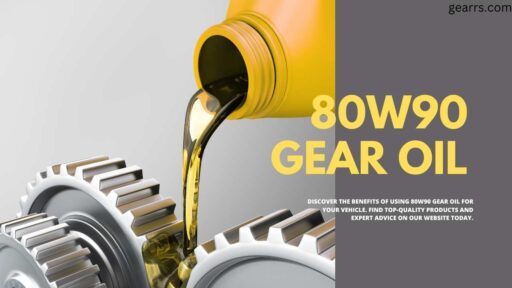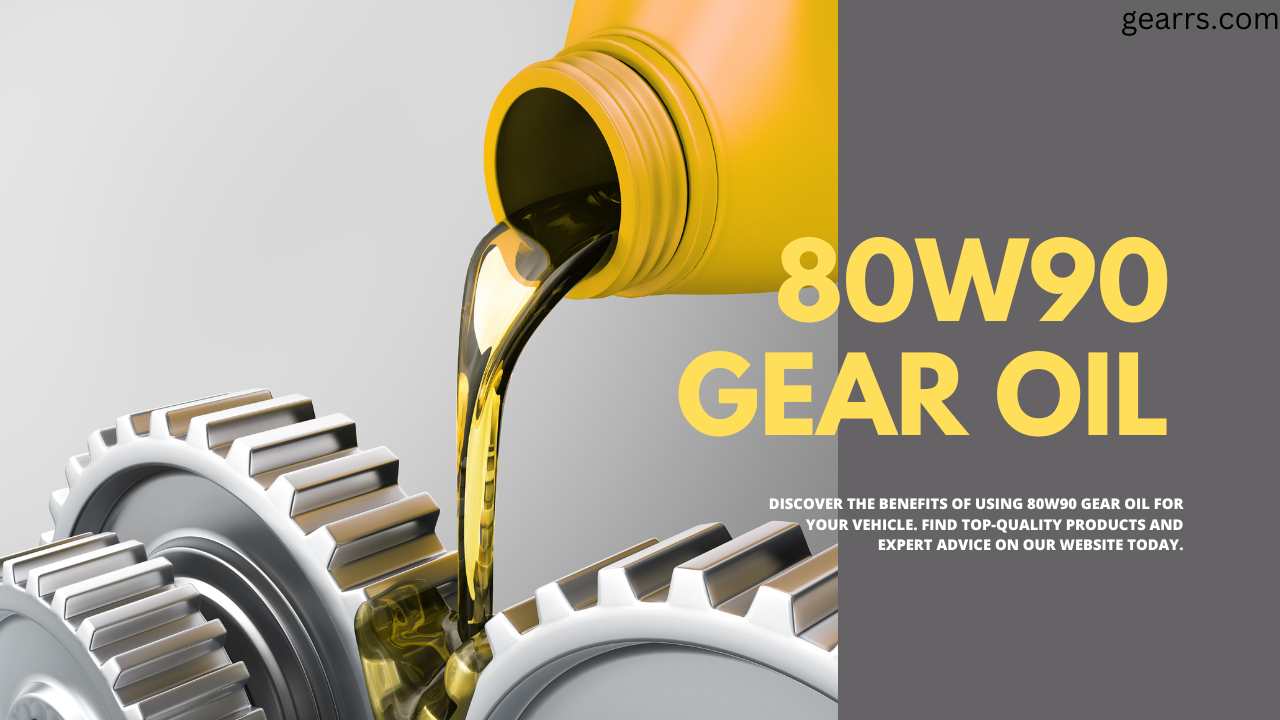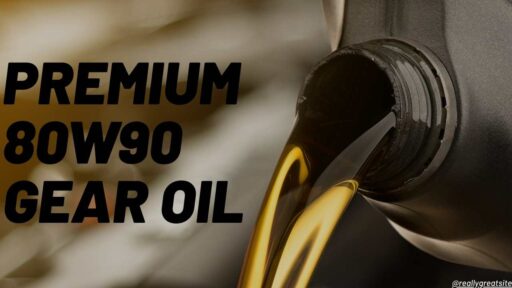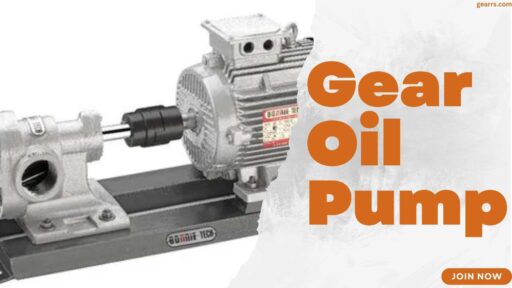Discover the benefits of 80/90 gear oil for optimal performance and protection. Our website provides comprehensive information and expert advice on this essential automotive lubricant.
The right lubricant is a key contributor to successful vehicle and machinery maintenance. Choosing the correct gear oil is crucial for me as someone who takes vehicle maintenance seriously to ensure optimal performance and longevity. One of the most commonly recommended lubricants for various applications, including this one, is 80/90 gear oil, a high-viscosity oil specifically designed for automotive and industrial equipment’s transmissions, differentials and gearboxes.
Based on my experience, choosing the best gear oil can greatly influence how machinery operates in extreme pressure or temperature conditions. The viscosity grade of this oil is indicated by its 80/90 rating which means that it maintains its protective properties over a certain temperature range. Knowing these characteristics will enable you achieve maximum performance as well as prolonged life of your equipment.
Additionally, modern developments in lubrication technology have seen 80/90 gear oils being engineered with better protection, efficiency and compatibility with wider range of materials. Everything you should know about its viscosity, benefits, usage and maintenance will be explained step by step in this manual.
Understanding Gear Oil Viscosity
What Is Viscosity?
Viscosity measures fluid resistance toward flow i.e., how thick or thin a lubricant is said to be. Basically explained it refers to thickness or thinness of an individual type of lubricant. Viscosity in gear oils plays an important role since it affects their ability to form film between teeth thus promoting wear resistance among them thicker oils would be preferred on gears under severe loading conditions involving heavy duty applications where there are considerable loads acting on components.
Importance of Correct Viscosity
In ensuring proper functioning within the operating temperature limits of any given piece of machinery; therefore selecting suitable viscosity during purchase entails buying gear oil that matches engine requirements at varied temperatures A highly viscous fluid may not flow freely in low temperatures meaning some parts may not receive enough lubrication thus increasing frictional force and causing excessive wears. On the other hand, it will not offer sufficient protection should the temperature be on the higher side which may cause premature damage.
Viscosity Grades Explained
For instance, gear oils have viscosity grades established by SAE (Society of Automotive Engineers), where 80/90 is rated in such a way that it can perform over a wide operating temperature range. The number ‘80’ implies oil flow in cold temperatures while ‘90’ means flow under higher temperatures. This rating system ensures that oil is best suited to various conditions hence its versatility for multiple applications.
Benefits of Using 80/90 Gear Oil
Enhanced Gear Protection
An increase in gear protection provided by 80/90 gear oil is one of its numerous merits. The high viscosity allows for continuous presence of a thick film of lubricant between teeth even when subject to heavy loading or shocks are experienced by gears. This layer obstructs any metal-to-metal contact reducing wear and tear on gears.
Improved Operational Efficiency
Also, improved operational efficiency is another advantage that comes with using 80/90 gear oil. Proper lubrication lessens friction between moving parts resulting in smoother running and lower energy consumption hence saving fuel in vehicles as well as reducing power intake in industries or factories.
Increased Temperature Range
Its versatility is due to 80/90 gear oil’s ability to perform across a wide temperature range. The oil continues to provide this protective function in cold or hot environments thus ensuring reliable operation. This product is therefore suitable for operation in different climatic conditions which is important for equipment that operates outdoors.
Different Types of Gear Oil and Their Uses
Conventional Gear Oils
Mineral-based or conventional gear oils are still the most popular choice for various applications. They may be made from crude oil and processed to attain the target viscosity and performance characteristics. Although they are generally cheaper, they may not give as much protection and performance compared to synthetic alternatives especially under extreme environmental conditions.
Synthetic Gear Oils
Synthetic gear oils have been developed with an aim of outperforming traditional oils. They are chemically engineered from base stock materials with good thermal stability, oxidation resistance and longer service life. My experience with synthetic 80/90 gear oil has shown that it can significantly reduce maintenance costs and downtime due to its enhanced protective qualities.
Special Additives
Many types of gear oils such as some 80/90 have additives that improve their performance. These include anti-wear compounds, anti-corrosion agents, and friction modifiers. For example, high-pressure systems or substances that corrode require these additives in the lubricant.
Considerations when selecting 80/90 Gear Oil?
Suitability for Equipment
It should also be noted that compatibility is key before choosing a gear oil. Most manufacturers will recommend certain kinds of gear oil to use on their machines; hence it is vital to follow this directive so as to avoid damages or voiding warranties. Compatibility extends also into equipment materials like gaskets, seals, metals among others which should not be degraded by the type of gear oil used.
Operating Environment
The operating environment plays a significant role in choosing the right gear oil. Extreme temperatures, humidity, dust and contaminants may affect the overall performance of a lubricant. A good example is when operating under high temperatures, one may require a gear oil having good thermal stability like synthetic 80/90 in order to retain its protective properties.
Load Carrying Capability
The load carrying capacity is another important aspect to look at for any gear oil. This means that heavy duty applications need lubricants that have high pressure withstanding capabilities. Gear oils like 80/90 which are more viscous usually work better in this situation because they exhibit higher film strength and can cushion gear teeth against heavy loads.
Proper Gear Oil Use and Maintenance
Checking Regularly and Changing Regularly
As much as it is necessary to choose the right type of gear oil, proper maintenance of the same is equally important. Frequently checking the level and condition of the oil can help in identifying potential problems before they lead to machine failure. Oil has to be replaced based on recommendations by manufacturers or whenever it gets contaminated, too dirty or deteriorates in quality.
Understanding Oil Analysis
Oil analysis is an important tool when it comes to monitoring gear oil conditions. This may involve determining contaminants, viscosity levels and presence of wear particles on samples taken from throughout the unit. In turn this information can be employed for anticipating failures, optimizing change intervals as well as enhancing overall maintenance.
Best Practices on Changing Oil and Disposing It

Credit: www.pexels.com
To have the machinery running for a longer time, it’s good to adhere to best practices while changing the gear oil. Make sure you always use clean equipment because contaminated equipment like dirty funnels may cause problems and also dispose of used oil properly as well get new oil of the right type and grade. This is not just an environmental matter but it is legally required in many jurisdictions.
Popular Misconceptions about 80/90 Gear Oil
“All Gear Oils Are the Same”
However, many people think that all gear oils are one and the same; thus, interchangeable – a fallacy! Purpose, components, and performance of gear oils vary significantly. Inadequate lubrication, fast wear-out and eventual failure of devices could be led by incorrect choice of this substance.
“Higher Viscosity Means Better Protection”
Not all higher viscosity oils are universally better under different conditions. For instance, the utilization of very thick oil in low temperatures leads to poor flow and inadequate initial lubrication. However, it is important to select an oil with appropriate viscosity that matches specific requirements within which these machines work.
“Gear Oil Doesn’t Need to Be Changed Often”
Another common myth among people is that gear oil does not require regular changes unlike engine oil. Nonetheless, thermal stress, contamination and oxidation may degrade quality of gear oils over time. Consequently, failure to change gear oil when recommended results into poorer performance with heightened friction in between gears.
Recommended Brands of 80/90 Gear Oil
Therefore, choosing a reputable brand for 80/90 gear oil is essential in order to guarantee its quality and performance standards. Some such brands I would recommend from my experience include:
Mobil: They manufacture high-performing synthetic gears.
Castrol: It offers some types of gear oils that have good thermal stability coupled with wear protection.
Valvoline: A lot has been said about their different classes or categories as far as their gear oils are concerned.
Amsoil: This company mainly markets its top-of-the-range synthetics for lubrication under extreme conditions.
Royal Purple: They contain proprietary ingredients which are added to these types of gear oil for more safety.
These brands have been proven in the field and enjoy loyalty among professionals as well as enthusiasts alike.
Where to Buy 80/90 Gear Oil
Automotive Stores
One can easily obtain 80/90 gear oil from automotive stores. These stores typically carry a selection of brands and can provide guidance on the right product for your needs. Additionally, they may offer other services such as used oil recycling or oil analysis.
Online Retailers
When it comes to buying via online, there is possibility moving around from one store to another and this can be done at home with various brands being available. Always make sure that you buy high-quality authentic gear oil from reputable sources.
Industrial Suppliers
Another option for purchasing 80/90 gear oil may be industrial suppliers if you need large quantities or looking for specialized applications. They often come with detailed product specifications plus bulk pricing options are also available.
Frequently Ask Question
What is the main difference between 80/90 gear oil and other viscosities?
The difference lies in the thickness of oil at different temperatures. At low temperatures, 80/90 synthetic has adequate flow whilst offering protection at higher temperatures, therefore making them versatile in their application areas.
Can I mix different brands of 80/90 gear oil?
This isn’t advisable, unless you have to fill in your oil; always ensure that the same brand and type is used. In case you don’t know what to do, consult a professional or the manufacturer.
How often should I change my 80/90 gear oil?
It depends on many things when changing gear oil such as manufacturers instructions, operating conditions, and type of gear oil. The specific time interval for every equipment can be found in the manual with an option of using oil analysis to optimize the schedule for changing oils.
Conclusion
The significance of 80/90 gear oil in car maintenance cannot be overstated. With its ability to lubricate, defend and work under a range of conditions this product forms an irreplaceable ingredient for extending life span of vital components of your automobile. By way of comprehension about characteristics and advantages associated with 80/90 gear oils one is able to make wise choices that enhance performance of his/her vehicle while enabling it last longer on roads. Whether going for a road trip across the country or walking into a construction site, right gear oil will see you through keeping the gears moving and wheels rolling for your machine which is a reliable companion.






